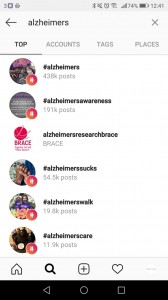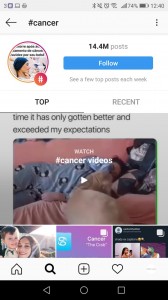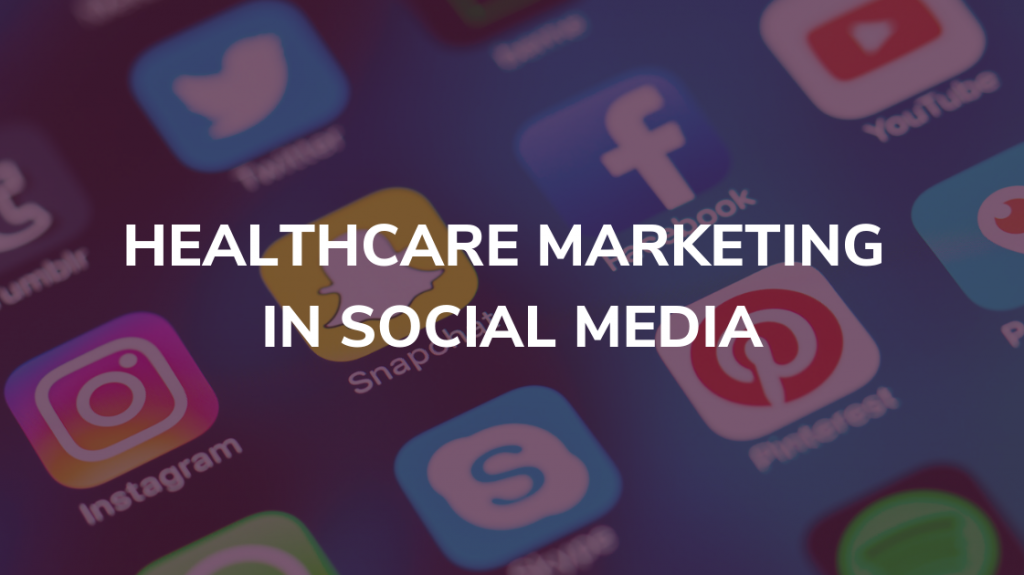 Healthcare providers are starting to make their presence known on social media platforms. In the day and age where misinformation is rife online, having qualified healthcare professionals sharing accurate information makes it easier for patients/potential patients browsing online.
Healthcare providers are starting to make their presence known on social media platforms. In the day and age where misinformation is rife online, having qualified healthcare professionals sharing accurate information makes it easier for patients/potential patients browsing online.
“Information on social media affects how more than 40% of people deal with their health” – Advertising Health
Studies show that when making a decision to use a service, people rely on customer feedback (such as positive reviews or shoutouts) more than anything else. With the advent of social media, these platforms have become the online version of word of mouth. Some 29% of people have said that they consider information relating to other patients’ experiences on social media before making an appointment (PwC healthcare social media report).
Social media in healthcare organisations is different to any other sector because, at its core, healthcare is a basic human necessity rather than an impulse buy. It is therefore crucial that your practice is perceived well by both current and potential patients.
What should healthcare services post on social media? We guide you through the ways you can harness the power of social media marketing in healthcare. 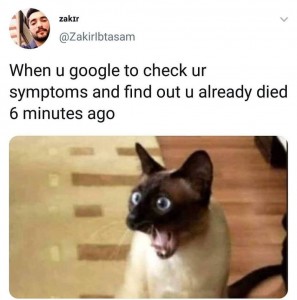
1) Share knowledge and accurate health information
What’s the first thing you do when you’re not feeling too well? You start googling all of your symptoms to work out what’s going on. As a health system, you need to make sure that you’ve got this information showing up in a number of digital channels such as the search results, healthcare website landing pages and your social platforms. Not only do you need to have this information readily available, but you also need to always cite your sources.
Gone are the days when people went to their GPs the moment something didn’t feel quite right. People now take the time to search online before deciding whether it’s worth seeing a doctor.
For this reason, healthcare professionals need to answer these questions through educational content to help people and be perceived as relevant by patients. It also helps to eradicate misinformation as people will trust you as their source of information.
You can use social media to quickly and easily get health information out regarding a new bug or virus. Whether it’s tips on how to deal with it or letting people know what stage they’d need to see a doctor. 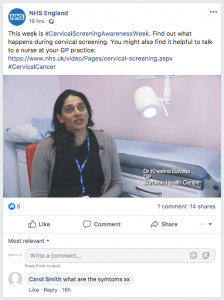
Another way of getting health information out is to create interactive quizzes to get a discussion going with the public. This can help you debunk common health-related myths and educate your audience at the same time.
These social media platforms serve as a simple way of connecting with your patients or potential patients and gives them the chance to ask any questions they might have about treatment options or how your practice can help.
2) Provide inspiration for sufferers
Those facing progressive diseases like cancer, Alzheimer’s or cystic fibrosis need to be inspired and motivated to continue moving forward. Making them feel like part of a community and sharing inspirational stories from other patients with them through social media can provide a much-needed sense of hope. 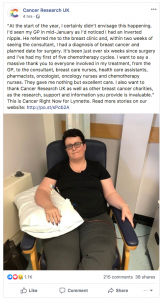
Not only does it help patients and their family members, but it also helps you to expand your reach whilst sharing an important story as these types of posts get the most shares.
3) Use the power of trending hashtags
Use trending hashtags to get your content appearing in the most relevant places but be sure to be smart about how you use it as you don’t want to appear insensitive.
4) Don’t ignore your reviews
Social media reviews, both positive and negative need to be managed with as much care as patient concerns are in the doctor’s office. These reviews will not only impact your practice’s reputation but also provides a place for patients to share their experiences.
Future patients will undoubtedly check your reviews before booking an appointment, so it is crucial to manage this and reply to all comments. According to Software Advice, 72% of patients use online reviews as their first step to finding a new doctor.
5) Use social listening to monitor the health of the public
Whilst this does not compete with medical research, it does allow you to get an understanding of common issues, questions or complaints. Use social listening tools like Nuvi to monitor questions you could answer in informative posts, look for common complaints people may have about rivals, or even begin to understand what people are most worried about. Public health organisations can even get a sense of the severity of symptoms and put out a message to provide the appropriate advice.
6) Consider paid social to reach a highly targeted audience
If your digital marketing strategy involves targeting very specific types of people and in specific locations, you may need to consider using paid social. The organic side of things sometimes prevents or rather limits you from reaching the most relevant people, however, LinkedIn allows you to set targeting for organic posts as well.
Online marketing can be quite tedious if you’re not used to it, so it might be wise to use a healthcare social media agency to handle it for you.
















